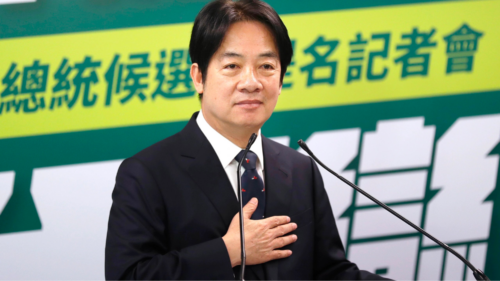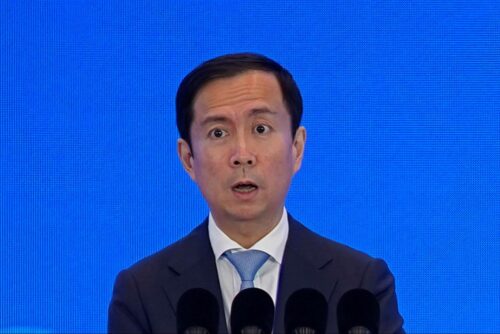China Business Corner: The new WeChat and its ‘Top Stories’ feature

China Business Corner is a weekly window into Chinese-language coverage of business, technology, and the broader economy, brought to you by co-writers Huang Sizhuo and Jordan Schneider (who hosts the ChinaEconTalk podcast). Sign up here to get this column in your inbox every Thursday.
WeChat’s ‘clique-level algorithm,’ finally a way to do battle with ByteDance
微信「圈层算法」,终于有了和今日头条一战的可能
Written by Zhou Tian 周天 on his self-named 周天财经 — Zhou Tian Finance channel
December 21, 2018
Thanks to WeChat’s new “have a look” feature (看一看 kàn yī kàn) — called “Top Stories” in its English version — our job here at China Business Corner has gotten a whole lot easier.
Whereas Bytedance has deemphasized social sharing in favor of relying on algorithms, prior to this new release, WeChat was more like old Facebook or Twitter in that it presented content to users chronological, doing little to prioritize one’s closest friends. With the addition of Top Stories, WeChat is supplementing this method with, as the author calls it, “scent matching,’ the ‘human algorithm’ of ‘people sorting themselves independently’ that I’ll tentatively call ‘friend circle-level algorithms.’”
In the past, the only two ways that someone could interact with a WeChat article were by forwarding it directly to a friend or using a cumbersome process to post it to your Moments. Moments are similar to Facebook’s News Feed but filled mostly with Instagram-style content from friends curating their lives. Active users are split into two camps: those who are selective about their posts and those who spam their followers with poor-quality content.
But now, after reading an article, a user can press 好看 (hǎokàn), i.e., “looking good.”
The closest analogy I can come up with, and perhaps the feature’s inspiration, is the “clap” button seen at the end of Medium posts.
This mechanism for interaction powers a new page separate from both one’s WeChat subscriptions (like a Twitter feed but only for brands and news outlets) and Moments (filled with Instagram-type content from friends alongside articles they think important enough to share), where the user can find articles that friends have liked.
Allen Zhang, the legendary creator of WeChat, has long minimized the influence of AI on his product in favor of friend-driven curation. This new “take a look” feature is his attempt to acquiesce to the realities of the age while still taking advantage of WeChat’s dominance in social to create a high-quality newsfeed.

How to view ‘Entrepreneurial Age’
创业时代怎么看
Published anonymously on “Sir电影” (Sir Movie)
October 26, 2018
Entrepreneurial Age (创业时代 chuàngyè shídài), a 54-episode TV drama available here on YouTube (no subtitles), has gotten a bad rap. With hated megastar Angelababy starring and legions of programmers decrying the show’s inaccuracies, Entrepreneurial Age has an atrocious 3.7 rating on Douban (China’s user-sourced Metacritic). However, this article by “Sir Movie” attempts to give the show a bit of context and revive its reputation.
The central conflict in the show, a fight between two messaging apps, is based off a true battle that took place on the Chinese internet in 2010-2011. In real life, Hongkonger Guo Bingxin, frustrated at the inconvenience of having to look at text messages while driving, founded Talkbox. His messaging app prominently featured voice memos, a feature particularly useful given the difficulty involved in typing in Chinese. For a time, it seemed like his app could give the likes of not only WeChat, domestically, but also WhatsApp, internationally, a run for their money. However, WeChat’s May 2011 addition of a voice memo feature made TalkBox obsolete.

The show’s theme, this article argues, is that in today’s harsh “entrepreneurial age,” the best programmers don’t make the best founders. Beautiful coding and product innovation aren’t enough to guarantee success. More important is the ability to be presentable at meetings (the protagonist’s adversary “uses pick-up artist tactics to seduce investors”) and the gall to shamelessly copy competitors.
The review concludes: “This is the paradox of Entrepreneurial Age. We are all now witnessing how everyone’s life is being transformed by the innovation brought on by the internet. Yet when we try to have a taste of what the life of an internet legend is actually like, we realize it’s just so-so.”

Alibaba and Tencent: Copy and paste their cashless game in Southeast Asia
阿里腾讯们在东南亚的复制粘贴游戏
Written by Liu Ran 刘然, published on 虎嗅 (Huxiu)
January 6, 2019
Sizhuo: When I was in Chicago, I noticed the green sign for WeChat Pay (developed by Tencent) and the blue sign for Alipay (developed by Alibaba) were ubiquitous in Asian grocery stores and restaurants. People can use their phone’s camera to scan the QR code to complete transactions in a matter of seconds.
This article from Huxiu explores how southeast Asia is growing into the next great Alibaba vs. Tencent battlefield.
Why southeast Asia? The author believes that southeast Asia has a large population with a considerably high proportion of young people and ethnic Chinese. In addition, the market is close to mainland China, which makes it affordable for Chinese tech giants to set up shop there.
Both Alibaba and Tencent have brought their cashless battle to southeast Asia. And how’s it going? According to this article, the largest online merchant in the area, Lazada. Tencent expanded its business empire by acquiring or partnering with the likes of Sea Group, Go-Jek, Travelok, Pomelo Fashion, and Tiki.vn.
However, Alibaba and Tencent’s copy-and-paste game is being challenged by local governments that restrict business-to-customer and customer-to-customer transactions. Meanwhile, international companies such as RazerPay have also proven to be powerful competitors.

Chengdu: The first 5G subway station in China
全国首个5G地铁站在成都开通
Written by Fang binnan 方彬楠 and Pu Zhenyu 濮振宇, published on Beijing Business Today 北京商报
January 7, 2019
Sizhuo: Have you ever been bothered by poor internet connectivity on subways? When I was in Toronto this autumn, before entering the subway, I had to notify my friends that I would be entering an internet-free zone. But in Chengdu, people might not have to worry — soon.
Chengdu is one of 12 test cities for 5G telecommunication technology experiments, and its Taipingyuan Station (太平园站 tàipíngyuán zhàn) on Line 10 is the first 5G subway station in the country. All of Chengdu’s 5G tests are conducted by China Mobile Limited, which announced last November that Chengdu’s Sino-Ocean Taikoo Li commercial street was the first 5G district in China. The company’s goal is to commercialize 5G technology by 2020.

This week, Sizhuo and Jordan would like to recommend two Chinese movies and a TV drama for readers who are interested in China’s businesses and entrepreneurs. Frankly speaking, some of these aren’t purely business films in the same vein as The Big Short (2015) or The Social Network (2010), but they present a Chinese perspective on the complexity of the business sector in the context of a developing market.
American Dreams in China (2013)

This movie has little to do with American dreams, but is a Chinese success story based on the development of New Oriental (新东方 xīndōngfāng), now a listed English-teaching school that we mentioned in the last week’s column. It perfectly captures the passion and adventurous spirit of college students in the 1980s of China.
Film Friday: ‘American Dreams in China’ perfectly captures the Chinese dream
Crocodile in the Yangtze (2012)
This film follows Jack Ma, the guy behind Alibaba. It was made using 200 hours of archival footage shot between 1995 and 2009, presenting the ups and downs of the internet startup, and tracing Ma’s path from English teacher to one of the richest and most respected tech and financial personalities in China.
Legend of Entrepreneurship (2012)
温州一家人 (36 episodes)

People from Wenzhou, a port and industrial city in Zhejiang Province, are known for their entrepreneurship and adventurous spirit. In this TV drama, a father sends his daughter to Italy, where she receives an education and manages to become an outstanding businesswoman. Meanwhile, the father, with his wife, stay in Wenzhou, where their small businesses begin encountering problems and challenges.












